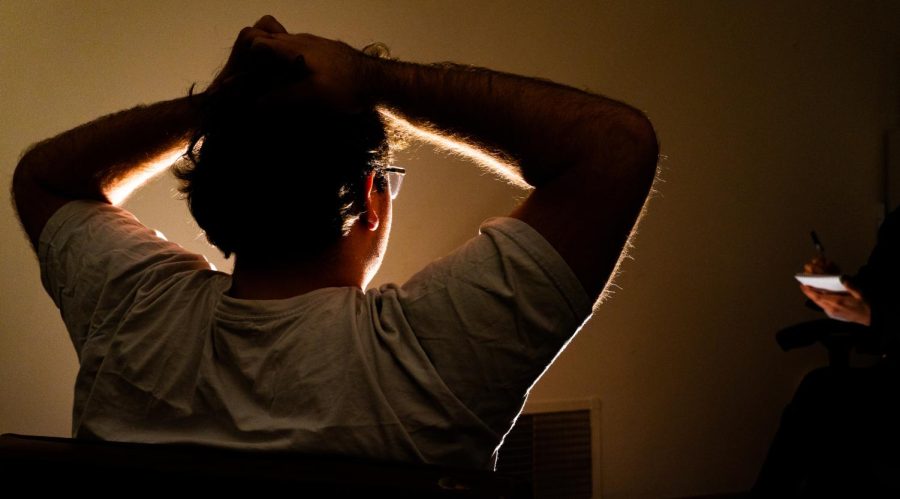National shortage of therapists affecting CWU’s Student Counseling Center staffing
May 10, 2023
The Student Counseling Center, located in the CWU Ellensburg campus, is currently having hiring difficulties due to the national shortage of therapists, according to Director of Counseling Cindy Bruns.
To understand why this national shortage of therapists is happening, lecturer of psychology and licensed therapist Jennifer Kassing said we must look at why more people are seeking mental health treatment.
“[Therapy offices] were getting full before the pandemic, but the pandemic really just exacerbated everybody’s issues,” Kassing said. “People in my experience are more willing [to go to therapy]. They’re also seeking more regular treatment and they’re staying longer. So it keeps counselors busier.”
Bruns said ideally the Student Counseling Clinic would have 10-12 permanent staff members, but currently they only have seven. According to Bruns, since the start of the academic year, they have seen 622 students in the clinic and 674 students in the 2021- 2022 academic year.
“In 2021-2022, students waited an average of 14 days to be matched with an individual counselor after going on our waitlist,” Bruns said. “In 2022-2023, students are waiting an average of 17 days.”
According to Bruns, one thing that helps bring down wait times is their partnership with TimelyCare.
“Some students elect to use TimelyCare for individual therapy rather than go on our waitlist,” Bruns said. “Most students can obtain a therapy appointment from TimelyCare in 1-2 weeks. Students having choices about how they receive care empowers students to make choices, based on expert recommendations, about what will best meet their needs.”
“University counseling centers used to be the place everybody wanted to work and nobody ever left, and so it was really hard to get in,” Bruns said.
According to Bruns, this decrease in people wanting to work in university counseling centers could be due to COVID-19 and practitioners moving to private practices because they could work from home and be in charge of their schedule.
“When we’re understaffed and may be not able to provide longer-term care or more complex care, which is what some of the students are really needing as they’re coming to college,” Bruns said. “Maybe they either have a history of using mental health services and really need that ongoing support or [are] approaching therapy for the first time.”
When you cannot meet those needs, Burns said it can be hard for people working in college counseling.
“There’s so much more that we want to give students, and yet are not really able to do that in the effective manner that we would like sometimes,” Bruns said.
According to Kassing, with this shortage of therapists, people are suffering longer because students may be away from home or in a new community.
“They’re coming in a lot of times with anxiety or depression or other sorts of things and trying to find a local mental health practitioner or even a prescriber,” Kassing said. “It just means that they’re suffering longer, which then can obviously affect their academics and their social relationships and all of those sorts of things.”
Changes to the Student Counseling Clinic
According to Bruns, the clinic has made several changes to its model over the past one to two years that have positively impacted the amount of time a student can be seen.
Bruns said the first change that was made was to their urgent crisis appointments. She said that in the past, they would only have two to three hours a day available for urgent appointments.
“[This] meant that if a student had a crisis, we either had to fit them in somewhere, which could mean a regularly scheduled client would be bumped,” Bruns said. “Or a staff member wouldn’t have the administrative time they needed to attend to their work, or they had to wait until the next day for support.”
According to Bruns, they now have staff members assigned to counselor-on-duty slots that are around five hours a day and because of this, urgent appointments are more available for students.
Bruns said the second change that was made was how the clinic handles their initial consultations, which are 30-minute appointments where students talk to someone about their concerns and put together an initial treatment plan.
“In past years, we would schedule these appointments as far out as necessary in order to accommodate requests,” Bruns said. “What we found is that if students were scheduled more than a couple of weeks out, they often no showed their appointments and then we were losing out on time that could have been used to support other students.”
According to Bruns, the clinic now put out these initial consultations in three-week blocks.
“If all the appointments in a block fill up, a student is placed on a cancellation list and we’ll call and offer them an opening if it comes up, like doctor’s offices do,” Bruns said. “We also give these students first chance at signing up for the next block of appointments when they open.”
The third thing that the clinic implements, Bruns said, is a stepped-care model.


